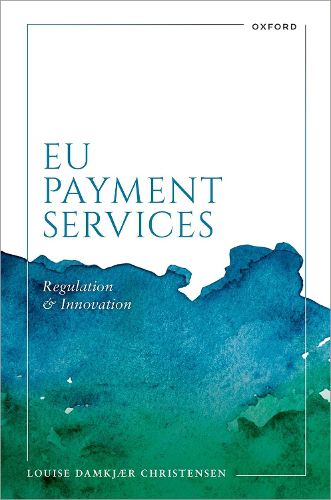Readings Newsletter
Become a Readings Member to make your shopping experience even easier.
Sign in or sign up for free!
You’re not far away from qualifying for FREE standard shipping within Australia
You’ve qualified for FREE standard shipping within Australia
The cart is loading…






EU Payment Services: Regulation and Innovation offers in-depth analysis of the regulation covering the EU market for payment services, the Revised Payment Services Directive (PSD2). The book evaluates the regulation's ability to accommodate innovation in payment services, maintain fair competition, and ensure consumer protection.Combining law and economic theory, EU Payment Services provides novel insights on practical aspects of payment services, as well as a deeper theoretical understanding of the PSD2's regulatory foundation. The book begins by investigating the PSD2's licensing regime, particularly its exemption provisions for small payment service providers. It then considers provisions for ensuring that all payment service providers have access to payment systems and that grant users the freedom of choice in providers. Finally, the book examines how the regulation can ensure safe payments in an increasingly digital world, where there is a growing threat of payment fraud. Rigorous and forward-looking in its approach, this book is an essential resource for those interested in financial regulation and EU law.
$9.00 standard shipping within Australia
FREE standard shipping within Australia for orders over $100.00
Express & International shipping calculated at checkout
EU Payment Services: Regulation and Innovation offers in-depth analysis of the regulation covering the EU market for payment services, the Revised Payment Services Directive (PSD2). The book evaluates the regulation's ability to accommodate innovation in payment services, maintain fair competition, and ensure consumer protection.Combining law and economic theory, EU Payment Services provides novel insights on practical aspects of payment services, as well as a deeper theoretical understanding of the PSD2's regulatory foundation. The book begins by investigating the PSD2's licensing regime, particularly its exemption provisions for small payment service providers. It then considers provisions for ensuring that all payment service providers have access to payment systems and that grant users the freedom of choice in providers. Finally, the book examines how the regulation can ensure safe payments in an increasingly digital world, where there is a growing threat of payment fraud. Rigorous and forward-looking in its approach, this book is an essential resource for those interested in financial regulation and EU law.